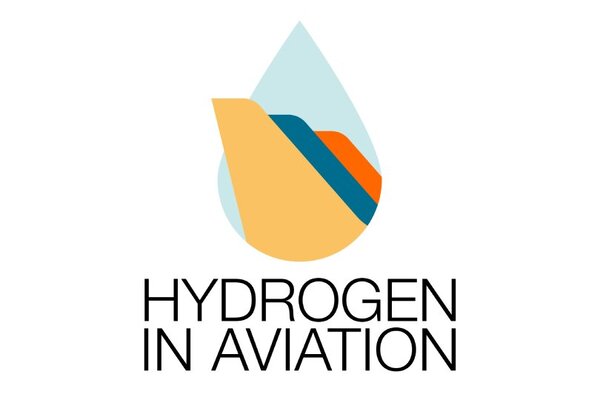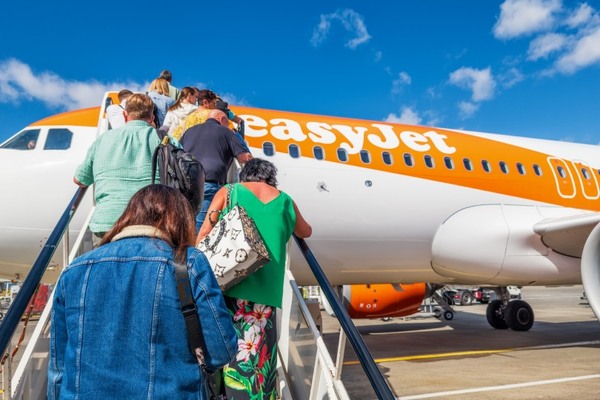'Things need to start happening now': why, for easyJet, the future is hydrogen
EasyJet boss Johan Lundgren believes the 2040s will be the decade ’hydrogen takes off’ – TTG’s Gary Noakes headed to Birmingham airport to find out what’s fuelling his confidence.
With sustainability weighing heavy on the aviation sector, most airlines have put their faith in jet fuel substitutes, but for easyJet’s chief executive, the future is hydrogen.
Johan Lundgren believes the fuel can be “a cornerstone of aviation” in future – at least in short-haul – and is the first chair of the Hydrogen in Aviation (HIA) alliance.
HIA’s members include easyJet, Airbus, Bristol airport, engine manufacturers Rolls-Royce and GKN Aerospace, and sustainable fuel specialist Orsted, plus ZeroAvia, which is developing a hydrogen-electric engine.
Airbus predicts a hydrogen-powered aircraft will be commercially available soon, and Lundgren is a believer. “We have estimated that 2040 is when hydrogen takes off," he said.
He was speaking as HIA released its Launching Hydrogen in Aviation report, and as easyJet opened its first new UK base for nearly a decade at Birmingham airport. “We want to see what it would take not just to fly an aircraft – test flights have been done already – but how we industrialise it."
If his dream is to become reality, there are many obstacles to overcome. Hydrogen cannot be used in existing aircraft and requires super-cooled cryogenic fuel storage if liquified hydrogen is used, as it must be kept at around -250C.
Bigger fuel tanks will be needed on aircraft with their own cooling systems, which will limit range. Even in its super-cooled state, four litres of liquid hydrogen is needed for every litre of standard jet fuel, Airbus explains.
The other potential source is hydrogen fuel cells that react with oxygen to produce electricity, but these are also heavy and range-limiting. Rolls Royce is testing a liquified fuel concept, while GKN is examining fuel cells and developing an engine for 90-plus seater aircraft, which easyJet could use – for example – for hops across the Irish Sea. ZeroAvia plans to have a certified engine by next year.
GKN is also part of a consortium now working on a liquid hydrogen fuel supply system. Its head of strategy Russ Dunn believes hydrogen is the answer in short-haul, pointing out 80% of flights globally are under 2,000km. “In that space, hydrogen fuel cells are very possible,” he said, adding the technology for 100-seat aircraft “will be ready in 2035”.
This suits Lundgren: “Our Airbus orders take us to 2034. When we sit down with Airbus, we would like to include elements of hydrogen,” he said.
However, Lundgren warned he would need to know how the technology would work given easyJet’s typical 30-minute turnaround time. There is also the economics of operating a 90 to 100-seat aircraft – roughly half the size of a current easyJet airliner – to be considered, along with the implications for ticket prices.
Meanwhile, engine development is continuing apace, but it is likely to be on the grounds that obstacles develop. There is little infrastructure in place for airports to store or deliver hydrogen, and a lot must be done in the next decade if Lundgren’s ambition is to be realised.
HIA’s report expects early usage will see hydrogen transported to airports via road. Later, it is expected gas would be liquefied and stored on-site at the airport once infrastructure is built.
HIA said there were plans for a national hydrogen "backbone" by the 2030s, repurposing sections of the national gas transmission network to transport hydrogen.
It called for increased government backing for fuel development, delivery and storage. “It is important the government acknowledges the importance of hydrogen liquefaction and can encourage the development of liquefaction capabilities in good time,” the report said.
Lundgren also stressed funds needed to be available for research and development. “This is an industry with very, very long lead times, so things need to start happening now,” he said.
He is also among those who think the CAA needs to take a more proactive role in regulating new fuel systems and for the government to make a firm decision on building pipelines.
GKN’s Dunn added: “We truly believe in the next decade we will see hydrogen in flight – but only if the infrastructure is there.”
’Don’t lose that lead’
The report envisages a starter network of around five airports in the UK, likely including Bristol, could be developed to establish the first regional turboprop flights. The hydrogen start-up has an advantage in that compared with conventional sustainable aviation fuel (SAF), there will be less demand, given its limitations.
The report said: “Hydrogen-powered aviation will require an estimated 350,000 tonnes of hydrogen by 2050, ramping up from around 20,000 tonnes in 2035. At the earlier stages of innovation, testing, and R&D up until 2030, hydrogen demand is expected to be 11 to 22 tonnes per quarter.”
Here, Lundgren is optimistic, believing production will increase anyway because of requirements from other industries. “By 2050, it will be 25-30% of UK energy requirements,” he predicted.
For short hops, hydrogen has its attractions once the infrastructure difficulties are overcome, but it does not mean totally guilt-free flying. While it is carbon emission-free, burning it still produces nitrous oxide, water vapour and contrails, which trap heat and increase global warming, while hydrogen’s non-CO2 impact is higher than fossil fuels. However, hydrogen-electric produces no nitrous oxide and less vapour.
Lundgren’s enthusiasm is understandable. He believes the UK is “leading the world” in the sector but needs investment and a skills academy to maintain its position.
Otherwise, it could be a familiar example of the UK being a pioneer in an industry only to later see others taking over. His message is simple: “Don’t lose that lead.”
Sign up for weekday travel news and analysis straight to your inbox

Gary Noakes
Supplier Directory
Find contacts for 260+ travel suppliers. Type name, company or destination.














